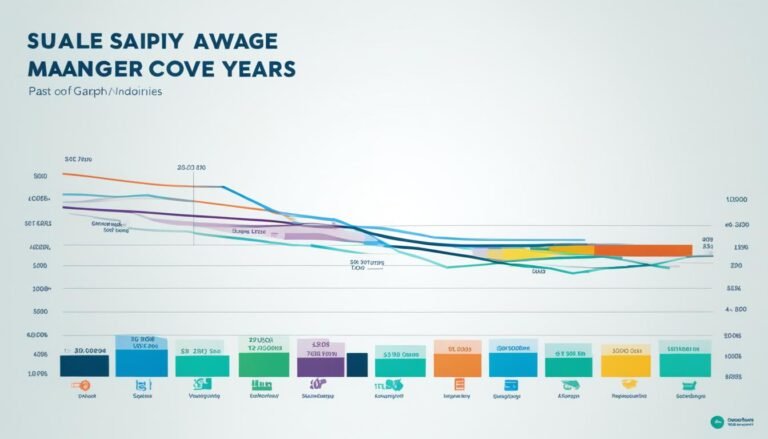Effective Property Management Tips for Success
Welcome to our comprehensive guide on property management tips and strategies for success. Whether you are an experienced property manager or just starting your journey in the real estate industry, these expert tips will help you enhance your skills and achieve exceptional results in your property management endeavors.
Property management encompasses various responsibilities, including communication, organization, tenant screening, and long-term planning. By implementing the right strategies and best practices, you can improve your efficiency, maintain positive relationships with tenants and owners, and ultimately achieve success in your property management career.
In this article, we will explore valuable insights and tips that can empower property managers to excel in their role. From effective communication techniques to embracing technology and establishing long-term goals, you will gain actionable advice to take your property management skills to the next level.
Key Takeaways:
- Communicate effectively with tenants, owners, and vendors by leveraging communication templates and technology.
- Be proactive in managing tasks, prioritize efficiently, and avoid procrastination.
- Stay updated with industry knowledge, trends, and regulations to ensure high-quality service.
- Maintain a positive attitude, remain resilient, and effectively handle challenges in property management.
- Implement a structured tenant screening process to find reliable, responsible tenants.
Make Communication a Core Competency
Effective communication is a crucial skill for property managers. By mastering communication skills, you can establish strong relationships, resolve conflicts, and ensure smooth operations in property management.
To streamline your communication processes, consider creating communication templates. These templates can serve as a foundation for consistent and efficient communication with tenants, owners, and vendors. Whether it’s sending lease agreements, maintenance updates, or rent reminders, having standardized templates saves time and ensures clarity.
“Good communication is the bridge between confusion and clarity.”
– Nat Turner
Additionally, leveraging property management websites can greatly enhance your communication capabilities. These platforms provide a centralized hub where you can share important announcements, documents, and updates with all relevant parties. By utilizing such websites, you can foster transparency and improve communication efficiency.
Furthermore, embracing technology is key to effective property management communication. Consider utilizing property management software and mobile apps that offer features like instant messaging, online maintenance requests, and document sharing. These tools enable real-time and seamless communication, allowing you to address issues promptly and provide exceptional service to your clients.
To get started, here’s an example of a property management communication template:
| Template | Purpose |
|---|---|
| Welcome Email | To introduce new tenants and provide important information regarding move-in procedures, property rules, and contact details. |
| Rent Reminder | To send timely rent payment reminders to tenants, ensuring prompt payments and minimizing late fees. |
| Maintenance Request Confirmation | To acknowledge receipt of a maintenance request and inform tenants about the next steps in the process. |
| Lease Renewal Notice | To notify tenants about upcoming lease renewals and provide necessary instructions and documents for the renewal process. |
Remember, effective communication not only helps in problem-solving but also enhances overall tenant satisfaction and contributes to the success of your property management business.
Key Takeaways:
- Creating communication templates can streamline your interactions with tenants, owners, and vendors.
- Property management websites offer centralized platforms for sharing important updates and fostering transparency.
- Utilizing technology, such as property management software and mobile apps, enables real-time communication and efficient issue resolution.
Don’t Procrastinate – Be a Proactive Property Manager
Successful property managers understand the importance of being proactive in their daily tasks. By prioritizing their workload, implementing efficient practices, and mastering time management, they can maximize productivity and achieve optimal results.
Proactive property management involves taking preventive measures and anticipating potential issues before they arise. Instead of waiting for problems to escalate, proactive property managers proactively address them, saving time, resources, and reducing tenant dissatisfaction.
Implementing efficient property management practices is vital to ensure smooth operations and maintain tenant satisfaction. Property managers should streamline their processes, automate routine tasks, and adopt innovative technologies tailored to their specific needs. By embracing modern property management software and tools, they can efficiently handle day-to-day responsibilities and focus on more significant aspects of their role.
Prioritize Tasks in Property Management
One of the key challenges property managers face is juggling multiple tasks and responsibilities. To effectively manage their workload, property managers need to prioritize tasks based on urgency, importance, and potential impact on stakeholders.
Creating a to-do list or using task management tools can help property managers keep track of their responsibilities and meet deadlines. By categorizing tasks into high-priority, medium-priority, and low-priority, property managers can allocate their time and resources accordingly.
| Task Priority | Description |
|---|---|
| High-priority | Tasks that require immediate attention, such as emergency repairs or tenant issues. |
| Medium-priority | Tasks that are important but not time-sensitive, such as routine inspections or lease renewals. |
| Low-priority | Tasks that can be deferred if necessary, such as research or long-term planning. |
By having a clear understanding of task prioritization, property managers can effectively manage their time, reduce stress, and ensure essential responsibilities are not overlooked.
In addition to prioritizing tasks, property managers should establish realistic deadlines for each task and develop a time management system that works for them. This could include setting aside dedicated time slots for specific tasks, utilizing time management techniques like the Pomodoro Technique, or delegating tasks to qualified team members or service providers.
Ultimately, proactive property management requires a disciplined mindset and a commitment to efficient practices. By adopting effective time management strategies and prioritizing tasks, property managers can optimize their performance, improve tenant satisfaction, and achieve long-term success.
Stay Up-to-Date with Industry Knowledge
As a property manager, it is crucial to stay informed about the latest trends, regulations, and market conditions in the property management industry. Continuous learning and staying up-to-date with industry knowledge are essential for providing the best service to property owners and tenants.
By keeping a pulse on property management industry trends, you can identify opportunities to optimize your operations, improve tenant satisfaction, and stay ahead of your competition. Whether it’s new technologies, emerging customer expectations, or market shifts, being knowledgeable about industry trends enables you to adapt and make informed decisions that benefit your business.
Additionally, staying informed about property management regulations is vital to ensure compliance and avoid legal issues. Local and federal regulations governing rental properties can change over time, so it’s important to stay updated on any new laws or requirements that affect your property management practices.
Continuous learning is key to staying current in this ever-evolving industry. Property management associations, online resources, industry publications, and professional development courses are valuable sources of knowledge and insights. Engaging in networking events and participating in industry conferences can also provide opportunities to learn from experts and connect with peers in the field.
Key takeaways:
- Stay informed about property management industry trends to gain a competitive edge.
- Regularly review and update your knowledge of property management regulations.
- Engage in continuous learning through industry associations, online resources, and professional development opportunities.
- Network with industry professionals and attend conferences to expand your knowledge and stay connected.
With a commitment to staying informed and continuously learning, property managers can position themselves as trusted industry leaders and provide exceptional service to their clients.
Cultivate a Positive Attitude
Maintaining a positive attitude is essential when it comes to property management. In this industry, you are bound to encounter numerous challenges and conflicts. However, by cultivating a positive mindset, you can effectively handle difficult situations and pave your way to success.
Staying Resilient as a Property Manager
A positive mindset allows you to stay resilient in the face of adversity. It enables you to bounce back from setbacks and keep pushing forward. Rather than dwelling on the negatives, focus on finding solutions and learning from every experience.
Managing Challenges in Property Management
Property management comes with its fair share of challenges. From dealing with difficult tenants to resolving maintenance issues, your ability to maintain a positive attitude will dictate how effectively you overcome these hurdles. By approaching challenges with a positive mindset, you can find creative solutions, diffuse tense situations, and maintain a harmonious working relationship with both tenants and property owners.
“A positive attitude can transform your property management journey. It enables you to see challenges as opportunities for growth and encourages you to seek out innovative solutions. Embrace positivity and watch your success and satisfaction as a property manager soar.”
Remember, your attitude sets the tone for your interactions, the atmosphere in your properties, and the overall success of your property management career. Stay positive, stay focused, and embrace the challenges as stepping stones to success.
Implement Effective Tenant Screening Processes
One of the key responsibilities of property managers is finding quality tenants. By implementing a structured tenant screening process, including background checks and thorough vetting, you can minimize potential issues and ensure a smooth landlord-tenant relationship.
Why Tenant Screening Matters
Tenant screening in property management plays a crucial role in selecting reliable tenants who will adhere to lease agreements, make timely rent payments, and maintain the property. Conducting background checks for rental applicants is an essential step in mitigating risks and protecting your investment.
“Quality tenant selection is critical for the long-term success of property management.”
By thoroughly screening potential renters, property managers can filter out applicants who may have a history of eviction, late payments, or other concerning behaviors. This process helps ensure that responsible individuals are chosen as tenants, minimizing the likelihood of potential conflicts or property damage.
The Tenant Screening Process
The tenant screening process begins with carefully crafted rental applications that collect essential information from prospective tenants. This includes personal details, employment history, references, and consent for background checks.
After receiving completed applications, property managers conduct background checks and verification procedures. This may involve checking credit reports, criminal records, rental history, and employment references. Utilizing professional screening services can streamline this process and provide comprehensive reports.
It’s important to establish consistent criteria for tenant selection and apply it uniformly to ensure fair treatment of all applicants. The criteria can include factors such as minimum income requirements, credit score thresholds, and rental history standards.
The Benefits of Effective Tenant Screening
Implementing effective tenant screening processes offers several benefits for property managers:
- Minimizes the risk of rent defaults and eviction
- Reduces the chances of property damage
- Promotes a safe and harmonious living environment for tenants
- Protects the property owner’s investment
By selecting high-quality tenants, property managers can create a positive and sustainable rental experience for all parties involved.
Embrace Technology and Innovation
Technology is revolutionizing the property management industry, offering innovative solutions that can transform the way you manage properties. By embracing property management technology, you can improve efficiency, streamline operations, and stay ahead of the competition.
One of the key advancements in property management technology is the availability of property management software. These software solutions provide a centralized platform to manage all aspects of property management, from tenant communication to lease management and maintenance requests. With intuitive interfaces and automation capabilities, property management software simplifies your tasks and allows for efficient workflow management.
In addition to software, mobile apps are becoming increasingly popular in property management. These apps enable property managers to access essential information and perform tasks on the go. Whether it’s receiving instant notifications about maintenance issues or conducting virtual property tours, mobile apps provide convenience and flexibility.
“Technology is revolutionizing property management, offering innovative solutions that can transform the way you operate.” – John Anderson, Property Manager
Another emerging trend in the property management industry is the adoption of smart home technology. By integrating smart devices like thermostats, locks, and security systems, property managers can enhance property security, increase energy efficiency, and improve the overall tenant experience. Smart home technology not only attracts tech-savvy tenants but also provides property managers with greater control and oversight.
To stay ahead in the evolving property management landscape, it is crucial to keep abreast of the latest technology trends. Regularly researching and exploring new tools can help you identify innovative solutions that can streamline your operations and elevate your property management practices.
Benefits of Embracing Property Management Technology:
- Improved efficiency through automation and streamlined workflows
- Enhanced tenant experience through centralized communication and self-service portals
- Increased productivity by reducing manual tasks and administrative burden
- Real-time insights and data-driven decision-making
- Better organization and management of lease agreements, maintenance requests, and financial records
Set Goals and Establish a Long-Term Strategy
Successful property managers understand the importance of goal-setting and strategic planning. By setting clear objectives and developing a long-term vision for property management success, you can drive your business forward and achieve sustainable growth.
Start by assessing your current performance and identifying areas for improvement. This evaluation will help you understand your strengths and weaknesses, allowing you to focus your efforts on areas that require attention. Regularly reviewing your performance and conducting benchmarking exercises against industry standards will help you stay on track and continuously evolve.
“A goal without a plan is just a wish.” – Antoine de Saint-Exupéry
Once you have identified areas for improvement, develop a strategic plan that outlines concrete steps to reach your goals. Consider the following:
- Identify specific, measurable, achievable, relevant, and time-bound (SMART) goals: SMART goals provide a clear framework for success. For example, increasing client acquisition by 10% within the next six months or reducing property maintenance costs by 15% over the next year.
- Implement effective strategies: Break down your goals into actionable steps and develop strategies to achieve them. This could include improving marketing efforts to attract new clients, investing in staff training and development, or leveraging technology to streamline operations.
- Create a timeline: Establish a timeline for each goal to ensure a structured approach. Set milestones and regularly review progress against these targets.
- Measure and track performance: Monitor key performance indicators (KPIs) to assess the effectiveness of your strategies. This could involve tracking metrics such as client satisfaction ratings, occupancy rates, or revenue growth.
Setting long-term goals and developing a strategic plan will provide you with a roadmap for success. It will also help you stay focused, motivated, and proactive in your property management efforts.
Remember, flexibility is key in the ever-evolving property management industry. Periodically review and adjust your goals and strategies to adapt to market conditions and emerging trends. By embracing a long-term vision and aligning your efforts with strategic planning, you can position yourself for sustained success in property management.
| Benefits of Goal-Setting and Strategic Planning | Action Steps |
|---|---|
| 1. Improved Focus and Direction | Define clear objectives and develop a vision for long-term success. |
| 2. Enhanced Efficiency | Break down goals into actionable steps and implement effective strategies. |
| 3. Motivation and Accountability | Establish a timeline, set milestones, and regularly review progress. |
| 4. Measurement of Success | Monitor key performance indicators to measure and track performance. |
Conclusion
In conclusion, implementing effective property management strategies is crucial for achieving success in the real estate industry. With a combination of effective communication, proactive management, industry knowledge, and technological adaptation, property managers can enhance their efficiency and provide exceptional service to clients.
By prioritizing tasks, staying up-to-date with industry trends, cultivating a positive attitude, implementing robust tenant screening processes, embracing technology and innovation, and setting long-term goals, property managers can establish themselves as leaders in the field.
Remember, property management success is not achieved overnight. It requires continuous learning, adaptability, and a commitment to providing the best possible service. By applying these effective property management tips and strategies, property managers can position themselves for long-term success and thrive in the competitive real estate market.







